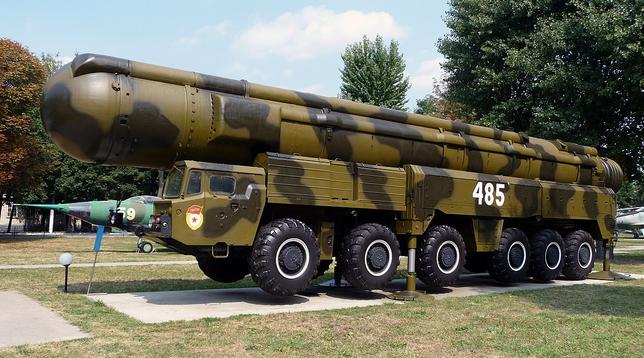@futurebird
There are a few related threads:
During the Cold War, MAD worked because the leaders of the nuclear powers were not completely suicidal. The worry with proliferation is that someone for whom scorched earth is a valid strategy would get them. A dictator of a small country may decide that it's better if everyone in their country dies when they lose power. Between Putin, Trump, and Netanyahu, I'm not really convinced that we haven't passed this point.
The other worry that undermines MAD is unaccountable nuclear weapons. If a Russian missile silo launches a missile, everyone knows where it came from. Nuclear submarines are harder but multiple countries know at least vaguely where everyone's nuclear submarines are, so if there's a nuclear launch from a bit of the sea then attribution is at least plausible (especially if everyone else then shares the location of their submarines). Strategic arms limitations treaties actually require nuclear powers to place other people's monitoring instruments in their silos, which means that everyone gets a constant telemetry stream saying 'missile not launched yet' (no idea how this works on submarines, probably they get it later?), so for the people playing by the rules you can tell that they haven't launched any of their missiles.
The big proliferation worry for US defence is someone putting a nuclear weapon in a shipping container and detonating it on the way into a major port city (like the one you live in), which would cause a massive tsunami and kill a lot of people, but be much harder to attribute unless someone claimed responsibility (there are deployed defences for this specific attack, but there are probably variations that would work). This makes the worry bigger for countries that have a history of sponsoring deniable terrorist groups. It turns out that nuclear material is not actually anonymous (you can probably work out from the fallout where it was refined, but it's far harder than just 'look, it was launched from over there'), so this isn't fully deniable, but it might be enough that if a country says that they didn't do it (and has a paper trail showing that a small quantity of fissile material was 'stolen') then it might be politically infeasible to retaliate. And if someone can show that you can kill a few million people in the USA without retaliation, then that's a strong message to the next group that wants to try.
The big worry for US politicians is that the US has a big conventional army and can probably manage 'regime change' (i.e. kick out the government and replace it with a puppet regime) in a lot of countries that have strategic resources (oil now, might be lithium or something else later) if they are unfriendly. They've done this multiple times (as has Britain, of particular relevance in Iran). Russia is failing to do this in Ukraine only because a load of other countries are helping. But if they try this with a country with a nuclear deterrent, they learn why it's called a deterrent. If a country is being invaded and looking at millions of deaths, destroying a city in the USA in retaliation looks attractive. It's much easier to negotiate for a good price on oil when 'if you don't do it, we'll tell everyone you're baddies, bomb your cities, and kill all of you personally' is the implied (or explicit) threat.

